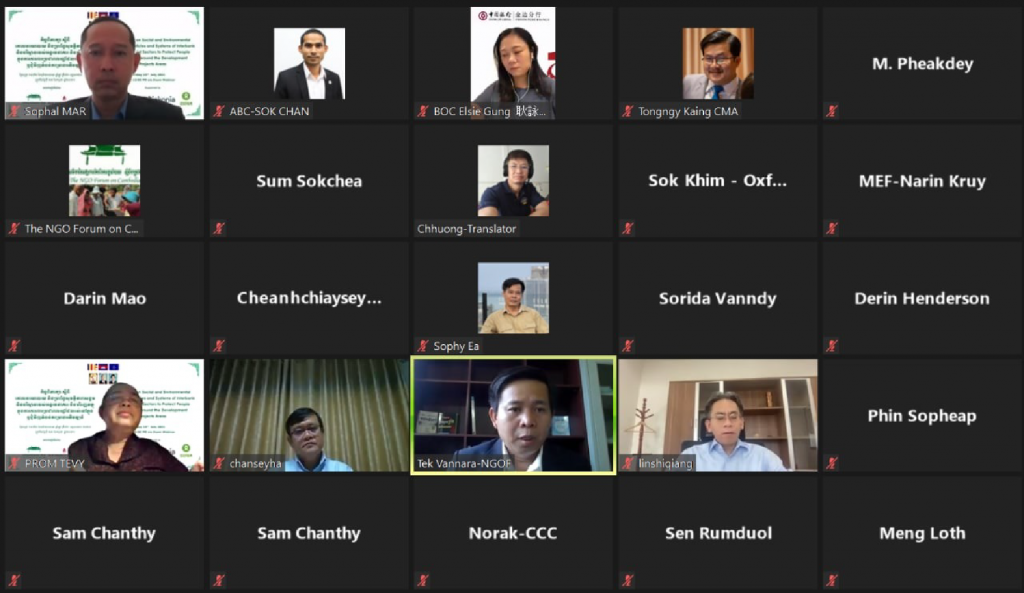To promote the social and environmental safeguard policies and system of the Interbank and financial sector, the Association of Banks in Cambodia (ABC) has established nine Sustainable finance principles, according to Ms. Elsie Gung, vice-chairman of the Sustainable Finance Committee of the Association of Banks in Cambodia.
According to Elsie, those nine principles are environmental protection, financial literacy, financial innovation, culture protection, financial inclusion, people protection, environment& social footprints, environment & social standards and transparency & accountability.
Elsie commented on the discussion on Social and Environmental Safeguard Policies and Systems of Interbank and Financial Sectors to Protect People Living in or around the Development Projects Areas, hosted by NGOs Forum on July 23 2021.
The objective of a discussion was to raise public awareness on social and environmental safeguard policies and systems of Interbank for implementing projects granted or financed by inter or local banks, to provide an opportunity to Interbank and relevant stakeholders to better understand the citizen’s needs in implementing social and environmental safeguard policies and systems of Interbank so far, and to explore joint actions, coordination, or collaboration toward upholding social and environmental safeguard policies and system among relevant key stakeholders.
Ms. Elsie Gung, who is also Deputy CEO of the Phnom Penh Branch of Bank of China, and was one of the panelists at the forum, said that the nine Sustainable finance principles aimed to cover 3 areas; protecting the environment, our people, and our cultural heritage, financing the future of Cambodia, and a leading the way.
She added that the Cambodian sustainable finance initiative (CSFI) which was developed and managed under ABC, is to establish and execute proper environmental and social risk management framework, develop and promote sustainable business opportunities, integrate sustainability in bank’s business, collaborate with stakeholders: government, regulators, other industries, investors, international partners as well as providing the capacity building and knowledge-sharing opportunities.
Ms. Elsie added that by achieving the above objectives, the people living in and around the development areas would benefit from a range of sustainable development goals as defined by the United Nations, including an environmentally protected and culturally protected surrounding, high level of financial literacy, innovative financial products to promote inclusive financial culture, and the proliferation of financial institutions with a high level of transparency and accountability.
Elsie also raises an actual example that, “As for Bank of China HK, we have already integrated environmental protection into our bank policies and actively promoted green financial services. By adopting various measures, we help to reduce the environmental impact of our operations and to protect the natural environment.”
“Our sustainability policy sets out practices for sustainable banking operations which have resulted in below benefits in our community: Reducing energy consumption by promoting and adopting energy-saving technologies, reducing waste by upholding the principles of reducing, reuse and recycle, as well as promoting paperless measures through innovative technology, and monitoring waste and greenhouse gas emission, energy and water consumption during business and strive to preserve natural resources.” She added.
